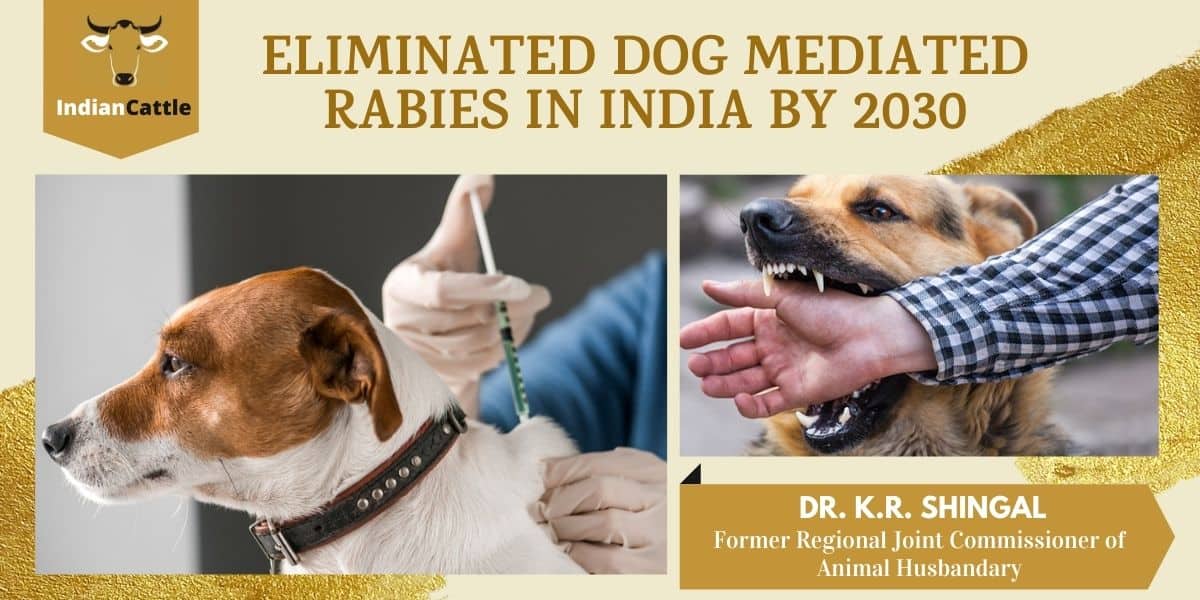
Eliminated Dog Mediated Rabies in India by 2030
Rabies is endemic in India, Australia, and Singapore. A Bahrain, Japan and England are the five which are free from Rabies.
Japan is the first Asian country that eradicated rabies from its root, so what about India?
Will India be among these five countries which are rabies free, the answer is yes, Yes, India will also be free from rabies only if WHO, FAO and World Animal Health organization set the goal to eradicate or eliminate rabies?
Among the 60000 fatalities worldwide due to rabies, 20000 per year is reported in India. The global strategic plan is to end dog mediated rabies in humans by 2030.
What is Rabies?
Rabies is a dreadful disease in which everyone is scared as it is one of viral infectious disease caused by neurotropic virus and characterized by various symptoms and lesions followed by ascending paralysis and mostly terminates to death. People think that rabies is unpreventable but this is false statement. Rabies can be prevented as now a day the world is changing with cutting edge vaccine technology to eliminate rabies virus. About 530 million US dollar are spent annually in the world as measures to prevent rabies, but in south Asian countries the disease is still an important public health problem as annual fatality due to rabies amounts to about 40000-60000 which is around 45% of deaths occurring in all parts of the world due to rabies. In Indian context, the situation is more pronounced as the death rate is very high and it is reported that 36% deaths took place in India per year. In 2015 a report by the global alliance for rabies showed that India accounted are third of global death due to rabies.
Till date, there is no declining trend in incidences related to rabies and reported incidences are probably an underestimation of true incidences because in India, Rabies is still an notifiable disease especially in rural areas compared to urban areas. This situation is due to general lack of awareness of preventive measure, in sufficient dog vaccine uncontrolled canine population poor knowledge of proper post exposure, prophylaxis, irregular anti-rabies vaccine and so on.
India has about 30 million stray dogs and because of this it is reported about 20000 human deaths occur from rabies comprising of mostly poor people and children since poor children after play near stray dogs and share food with them which may result in frequent bites. It has been reported in one of the studies that most attacks are on childrens get unnoticed due to lack of awareness and their parents often ignore the attacks or simply treat the wound without any medical advice which leads to enhancements.
In case fatality it is pertinent to mention one incidence that occurred in Mizoram, where a women informed the dog bite as she was asymptomatic but later on after 26 years of exposure in 2012 the woman start showing symptoms of rabies which led to her death.
Mostly the spread of rabies is primarily due to poor vaccination people keep pet animals with love and care but neglect their anti-rabies vaccination. If an unvaccinated dog is bitten by a rabid dog, the unvaccinated dog becomes prone to infection and if the owner or children is playing with this unvaccinated dog prone to infection the virus may spread mostly through saliva and the person may contact rabies and show symptoms untreated cases of infection may lead to death be it human or animal so the spread of awareness and knowledge about rabies regarding the wound washing the vaccinations very much important to control rabies.
Control
- Anti-rabies vaccination for prophylaxis to dogs. Primary vaccination to be given on 3 months and if vaccination is given after 1 month and then annually and if vaccination is given after 3 months booster should be given after 1 year.
- Anti rabies vaccination post exposure 0,3,7,14,28, 90 days
- On getting a dog bite consult your doctor immediately and get anti-rabies post exposure vaccination.
Measure to make India rabies free
- Public education campaign needs to be conducted to make people aware of the existence of rabies especially in remote areas.
- Primary care providers should be trained to administer proper prophylaxis including intradermal vaccine.
- Medical colleges need to provide interns with sufficient training and exposure for animal bite management
- The stray dogs should be sterilized to reduce vector population.
- Rabies should be declared as a notifiable and incorporated into the health programme.
- Regular anti-rabies vaccination should be given to the pets.
- Veterinarians, medicos, policy makers and citizens should work together of contain the disease by coming up with new solutions
- By doing the best, India will be one of these free countries who will be free from rabies by the year 2030.
Dr. K. R. Shingal
B.V.Sc. & A.H., M.V.Sc., N.D.B.P
Former Regional Joint Commissioner of Animal Husbandary,
Government of Maharashtra state, India
Email: drkrshingal@gmail.com
